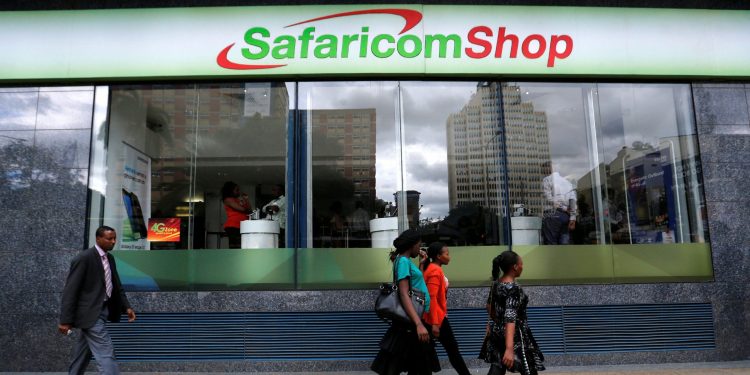Listed telecom firm Safaricom has maintained its dominance of activity at the Nairobi Securities Exchange (NSE) with its shares accounting for between 50% and 56% of the KSh 2 trillion bourse.
According to the Capital Markets Authority(CMA), Q2, 2020 report, the top five companies by market capitalization accounted for an average of 75.43% of the market, the highest in the last four quarters.
CMA has already expressed concerns over the dominance of a few listed firms at the NSE and is keenly working on a plan to address the issue and reduce the exposure risk that the Kenyan market faces.
In its bid to reduce the exposure risk levelled by the high market concentration by the top 5 companies at the bourse, the Authority has developed a short-term strategy aimed at reviving the market from Covid-19 effects.
“Market concentration is the function of the size of a listed firm. This is why Safaricom has 58% concentration of the market’s capitalization,” said Luke Ombara-Director, Regulatory Policy and Strategy, CMA.
A key initiative to be undertaken includes partnering with the Privatization Commission and policyholders in promoting privatization and divestitures of government stake in some of its enterprises and agencies.
Foreign investors took KSh 10.3 billion out of Nairobi Securities Exchange(NSE) between April and June 2020. This is compared to a net outflow of KSh 11.2 billion in Q1, 2020.
According to the Capital Markets Authority(CMA) Soundness Report, Q2, 2020, Foreign investor participation in the quarter ended June 2020 averaged at 64.59% compared to 61.14% recorded in Q1.2020.
This increased activity by foreign investors is attributed to the rising turnover levels; more domestic participation has been witnessed within the market as local investors buy into counters where prices are relatively low and competitive.
The Authority has been keen to reduce the heavy reliance on foreign investors at the NSE by reaching out to the Kenyans in the diaspora as well as appealing to local investors to increase their participatation.
Hedging against COVID-19 Pandemic
The CMA Q2, 2020 statistical report shows that turnover levels in the Covid-19 era have relatively risen with more trading activity witnessed on the New Gold ETF Counter as investors seek to take positions in relatively asset classes to retain the value of their investments.
Figures indicate that the NSE 20 Share and NASI Index volatility averaged at 0.59% and 0.89% respectively compared to 0.65% and 0.83% respectively recorded in Q1.2020.
The NSE 20 Share index volatility reduced with that of the All Share Index increasing as activity across some sensitive counters such as KQ, ABSA, Kenya-Re and the ETF Gold were observed based on new market information and resultant investor reaction.
While the volatility in the market remains relatively high in comparison to pre-COVID-19 era, there was a considerable reduction of the same for the NSE 20 Share index.
This is as investor positions become more predictable in the face of new material information likely to change investor positions for speculative purposes comes to market.
The Authority, in conjunction with the NSE, remains vigilant in ensuring trading is not primarily driven by speculation.
During the quarter, the NSE suspended trading on the KQ counter upon approval by the Authority. This followed the publication of the National Management Aviation Bill 2020 that is expected to cause imminent corporate restructure and a government buy-out.
While countries such as Tanzania has drafted guidelines that require some firms to list by default, Kenya has adopted a more persuasive approach.
ALSO READ:Pandemic triggers outflow of KSh 10.2 Billion from NSE in Q2, 2020
ALSO READ:



